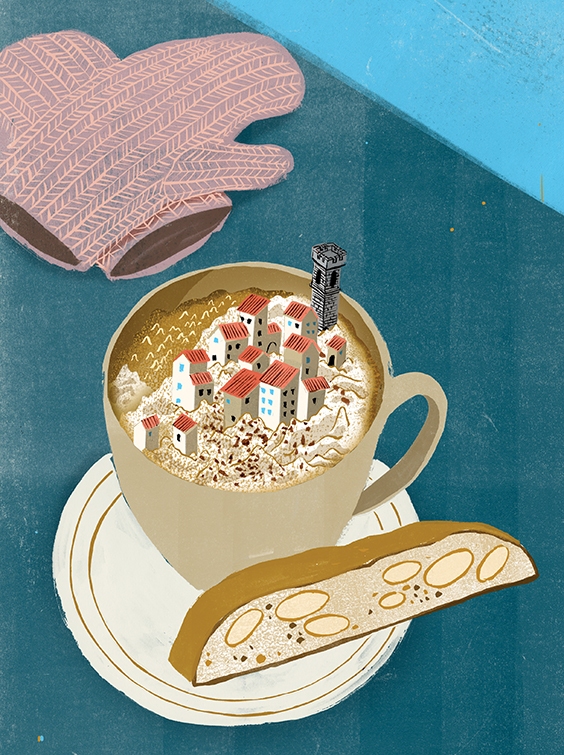Edmonton sounds like it looks. Three hard syllables. No flourish. Its brutalist buildings don’t exactly make for the best Instagram backdrops.
As a self-proclaimed Italophile, whose forebears – along with thousands of other Ital-Canadians – came from knotty hillside villages in southern Italy, I can’t help but imagine strolling streets seeped in sepia. Sometimes, I swear, I can feel the fortress-like, functional buildings of this city weigh down on me.
When I’m feeling this way, I have to crop out the mucky-snow lined streets – zoom in – by going inside. I open the door to Spinelli’s Bar Italia: order a cappuccino and a biscotti – this café is both a way to indulge in my love of all things Italian, as well as connect with my city. There are elsewhere histories here and, in that, there are places that reflect these histories if you’re willing to seek them out.
In 1959, Frank Spinelli, who came from the southern Italian village, San Pietro al Tanagro (how is that for a roll-off-the-tongue name?), opened a small shop that carried goods like chocolate bars and pop. Many of his patrons, though, came in to read imported Italian newspapers and magazines. Soon, Frank was accepting requests for lattés and espressos from people who wanted to enjoy them while reading of news from home. It didn’t stop here: others wanted the pastas and breads like their grandmothers had made.
Within 14 years, the Italian Centre Shop, a full grocery store, was built and it provided a hub for the growing Italian community. At the back of the store, members of this community gathered, while dealing cards around the table, exchanging stories and planning cultural events.
Today, Frank’s daughter, Teresa Spinelli, who learned to walk in the pasta aisle, is the owner of the Italian Centre Shop, which she expanded on to include a second location on the south side, along with a restaurant: Massimo’s Cucina Italiana and, soon, a location on the west end. The expansion and success of Spinelli’s reminds me that while it’s easy to wish to be lost in an ancient city, those southern Italians who emigrated here didn’t come from the places that are a part of the western imagination like Rome and Venice. Following the Second World War, many, like my relatives, left often impoverished villages in search of economic and political stability. They arrived in cities like Edmonton and carried with them rich cultures now found in places like Little Italy.
